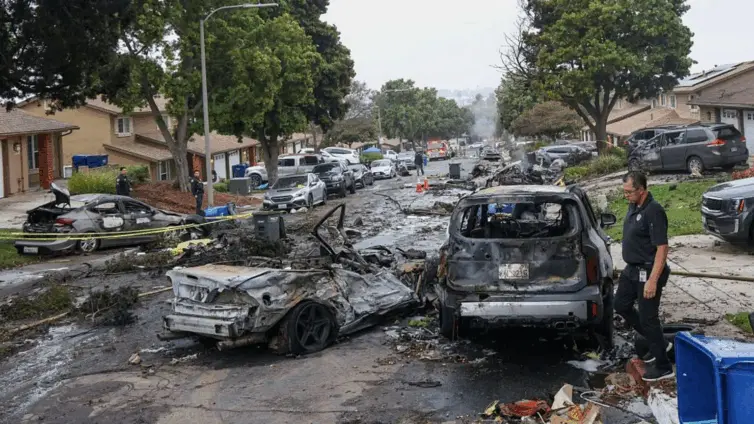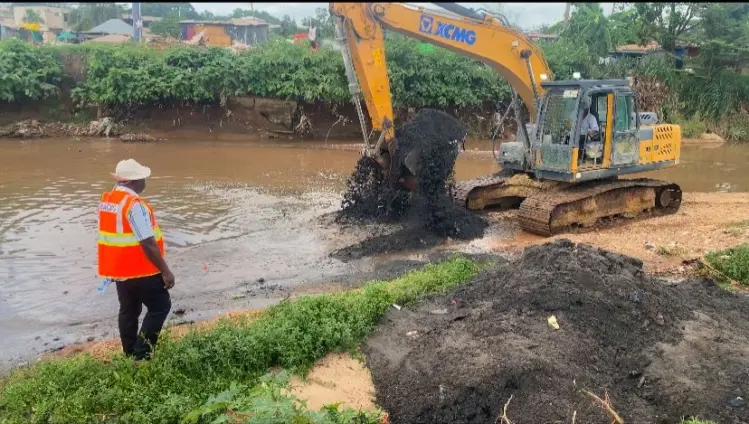The relentless downpour transformed the serene Lakeside community in the Adentan Municipality of Greater Accra into a scene of devastation. On a recent Sunday, torrential rains unleashed the Lakeside Floods, leaving a trail of destruction in their wake. Homes were submerged, shops lay in ruins, and personal belongings were scattered amidst the debris. The Greater Accra flooding claimed lives, plunging families into mourning and leaving many residents grappling with unimaginable loss.
In the aftermath of the tragedy, questions are being asked about the underlying causes of the Lakeside Floods and the effectiveness of the response. This article delves into the details of the disaster, examining the National Security‘s initial assessment, the residents’ accusations of negligence, and the broader context of urban planning and flood relief in Accra. It explores the critical issues surrounding the drainage system and the urgent need for solutions to protect vulnerable communities from future inundations.
National Security Assesses Flood Damage in Lakeside
Following the Lakeside Floods, a team of National Security officials visited the affected area on Monday to assess the damage firsthand. Their mission, as they stated, was to report back to the President and recommend immediate action. “The officials, who toured the affected areas on Monday, said they were sent by the President to assess the damage and report back for urgent action,” confirmed a local news source.
The scope of the devastation was immense. The Lakeside Floods resulted in the tragic loss of three lives. Countless homes were rendered uninhabitable, and businesses suffered irreparable losses. The emotional toll on the residents, compounded by the economic hardship, painted a grim picture of the challenges ahead. The floodwaters spared nothing, leaving behind a landscape of despair and uncertainty.
In the immediate aftermath, National Security initiated flood relief efforts to provide assistance to the displaced residents. Temporary shelters were established, and aid was distributed to help those who had lost everything. However, the scale of the disaster highlighted the need for a more comprehensive and sustainable response to address the root causes of the Lakeside Floods.
Residents Blame Poor Drainage for Lakeside Floods
Amidst the recovery efforts, residents of Lakeside voiced their grievances, pointing fingers at the engineers responsible for the East Legon Hills road. The residents claim that the Lakeside Floods were a direct result of the engineers’ decision to divert all drains into a single outlet. This, they argue, overwhelmed the drainage capacity and led to the catastrophic inundation of their community. “Residents of Lakeside have blamed the engineers who constructed the East Legon Hills road for diverting all drains to one outlet, leading to the heavy flooding,” stated a local resident.
The residents further contend that the drainage system itself was poorly designed, unable to handle the volume of water channeled into it. Multiple water channels, they claim, were consolidated into a single outlet, creating a bottleneck that exacerbated the flooding. This highlights a critical need for thorough urban planning and robust infrastructure maintenance to prevent such disasters in the future.
Addressing the drainage issues is paramount to preventing future Lakeside Floods. Solutions could include expanding the capacity of the existing drainage system, creating additional outlets to distribute the water flow, and implementing regular maintenance schedules to ensure optimal functionality. Failure to address these underlying issues will leave Lakeside vulnerable to future flooding events.
The Bigger Picture: Urban Planning and Flood Control in Accra
The Lakeside Floods underscore Accra’s broader vulnerability to flooding. Rapid urbanization, inadequate infrastructure, and the increasing impact of climate change have all contributed to the city’s susceptibility to devastating floods. The Accra flooding events of the past serve as stark reminders of the urgent need for comprehensive urban planning and effective flood relief measures.
The government has initiated various initiatives aimed at improving urban planning and flood control in Accra. These initiatives include investments in infrastructure upgrades, the implementation of stricter building codes, and the development of long-term strategies to mitigate the impact of climate change. However, sustained commitment and collaboration are essential to ensure the effectiveness of these measures and to protect vulnerable communities from future disasters.
The Lakeside Floods serve as a stark reminder of the devastating consequences of inadequate urban planning and infrastructure. The National Security response and the residents’ concerns highlight the urgent need for comprehensive solutions to address the root causes of the flooding and protect vulnerable communities. Improved urban planning, infrastructure maintenance, and effective flood control measures are essential to prevent future tragedies and ensure the safety and well-being of all residents. Share this article and advocate for better urban planning and disaster preparedness in your communities to help prevent future Lakeside Floods.
Image Source: MYJOYONLINE






















